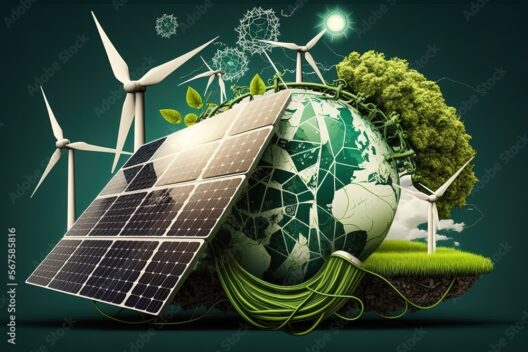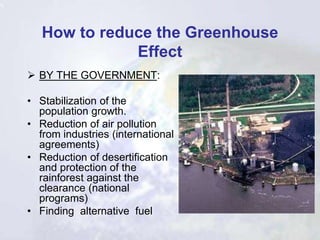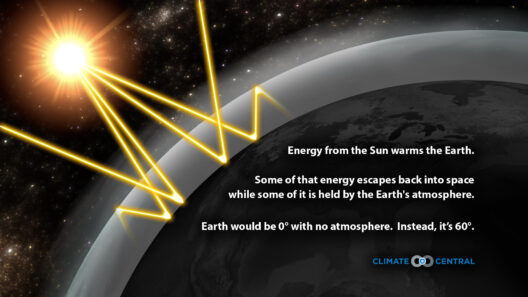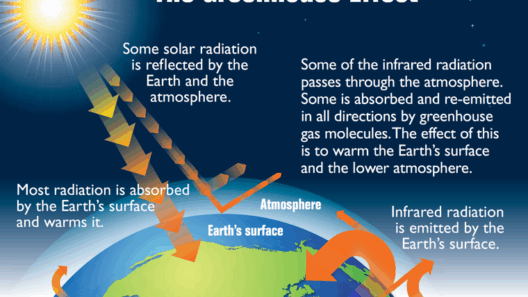The Earth as we know it relies heavily on a delicate balance maintained by the greenhouse effect. This natural phenomenon is pivotal in regulating our planet’s temperature, allowing life to thrive. However, have you ever considered how vastly different Earth would be if the greenhouse effect did not exist? Without this essential mechanism, our planet would be transformed into a considerably cooler, inhospitable space devoid of diverse life forms. This exploration delves into how the absence of the greenhouse effect would disrupt the natural world and humanity’s existence.
Understanding the Greenhouse Effect
To comprehend the implications of a world without the greenhouse effect, it’s essential to understand its mechanics. The greenhouse effect is triggered when solar radiation reaches Earth, and while some of this energy is absorbed, a significant portion is reflected back into space. Greenhouse gases, such as carbon dioxide, methane, and water vapor, trap some of the outgoing energy, creating a warming layer around the planet. This process keeps our average temperature at a balmy 59 degrees Fahrenheit (15 degrees Celsius), making it possible for ecosystems to flourish.
Without the greenhouse effect, sunlight would still reach the Earth, but the lack of trapped heat would result in a severe temperature drop at night and an overall decline in average temperatures. Recent studies indicate that the Earth’s temperature could plummet to as low as -18 degrees Fahrenheit (-27 degrees Celsius) in such a scenario. What does this mean for the environment, the oceans, and, ultimately, us?
Climate Chaos: The Ice Age Awaits
The most immediate consequence of a world without the greenhouse effect is a stark plunge into a perpetual Ice Age. Glaciers would expand, blanketing vast regions of land in ice and snow. In the absence of warming, areas that currently support agriculture would be rendered unable to produce crops; the fertile plains would go white, devoid of the vibrant greenery that feeds millions.
As the oceans cool, their surface temperatures would decrease dramatically. The once temperate zones with rich marine biodiversity would transform into frigid waters that cannot support most existing marine life. Coral reefs, which are sensitive to temperature fluctuations, would cease to exist, leading to a catastrophic decline in species diversity. The ramifications would cascade through the entire ocean ecosystem, destabilizing food chains and resulting in mass extinctions.
Severe Impacts on Weather Patterns
Earth’s weather systems would drastically alter without the greenhouse effect’s temperature moderation. Climatologists posit that weather patterns would become increasingly erratic, with exacerbated storm activity and extreme temperature fluctuations. The lack of warmth would lead to harsher winters and cooler summers, inhibiting the growth of vital crops and stressing agricultural systems worldwide.
Desert regions could also expand as altered precipitation patterns displace the delicate cycles that govern rainfall. What were once arable lands could fall into desolation, rendering them incapable of sustaining human populations. The planet would transition into a battleground for survival, with regions previously marked by lush vegetation now struggling to support life.
Human Existence on a Cooler Planet
The prospects for human existence on a planet stripped of its greenhouse gases are dire. The immediately inhospitable climate would drive the global human population into massive migration patterns, as groups would seek warmer enclaves to survive. Cities and civilizations that thrived in temperate zones would face unprecedented challenges, as food scarcity and resource conflict take center stage.
Those who remain would have to adapt to a life defined by subsistence and survival. The technologies and infrastructures developed to support modern life would falter under the extreme conditions. Innovations designed to harness energy from nature—solar panels, wind turbines, even geothermal systems—would be largely ineffective in a colder climate. Society, in its current form, would likely disintegrate as desperation for food, water, and shelter drives communities apart.
Ecological Consequences Beyond Comprehension
The implications of a world without the greenhouse effect extend beyond immediate human and ecological impacts. The intricate web of biodiversity that characterizes our planet would suffer heavily. Species that have adapted to specific climate conditions would either face extinction or undergo drastic evolutionary changes over time. The stunning diversity of flora and fauna that exists today would diminish, leading to desertification and loss of genetic resources necessary for resilience against future environmental changes.
Moreover, the psychological and cultural implications for humanity cannot go unnoticed. The stories, traditions, and connections fostered by an environment rich with nature would vanish, replaced by bleak, inhospitable landscapes. A cooler Earth would quell the vibrancy of colors and sounds, altering human expression and the cultural tapestry woven by countless generations.
In Closing: A Call for Awareness and Action
Considering a world without the greenhouse effect is not merely an exercise in imagination; it highlights the irreplaceable role it plays in supporting life. The temperature regulation fostered by greenhouse gases is not just vital; it is essential. It prompts an urgent call for awareness regarding our role in the current climate crisis and the pressing need for sustainable practices to preserve our fragile environment. As the effects of climate change become increasingly palpable, it’s imperative to recognize what life would be like on a planet devoid of this crucial layer of protection. The balance may seem unwarranted, but safeguarding our atmosphere is our collective responsibility for future generations.







